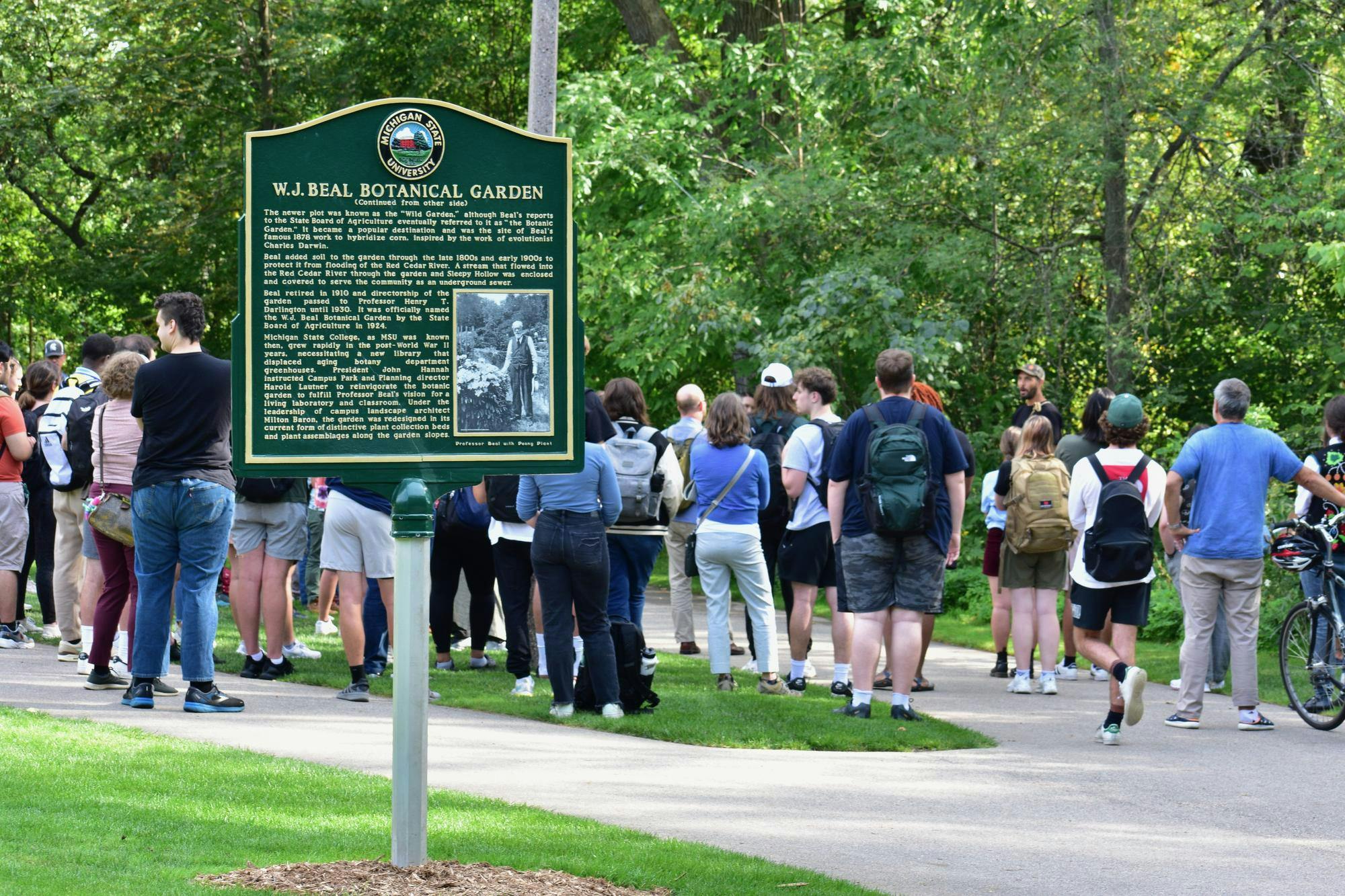Former Beal Botanical Garden Communications Specialist and Michigan State University alumna Molly Taylor remembers when the idea for a virtual green space was only a conversation in her senior year Capstone advertising class.
The project, now called Restore Your Roots, is a part of Beal Botanical Garden’s overarching Nurture Your Roots program — a series of initiatives intending to focus wellness in engagement with nature. However, the project had humble beginnings, Taylor said.
Taylor’s class selected Beal as a client in honor of the Garden's 150 year anniversary. Her group was tasked with constructing a campaign idea based around the garden.
They came up with the idea for a virtual green space in order to make the garden accessible for all whenever people want to engage with it, she said.
“My group's idea was based around wanting to bring the garden indoors for students during the wintertime,” Taylor said. “The garden is so beautiful and it's such a gem on MSU's campus, but a lot of the students don't even know about it, or when they do find out about it, it's
during the winter when things aren't even in bloom. So we kind of wanted to figure out a way to bring the garden inside for students.”
In its original iteration, the virtual green space— then called Vitamin Beal— utilized Abrams Planetarium to bring still images of Beal Botanical Garden to life.
“We used the Abrams Planetarium on campus to create this beautiful visual show of the garden that was displayed accompanied with meditative music to go along with it,” she said.
The event ran for two days during finals week. Even in its earliest form, Taylor said, the project had an association with getting students to “relax and reset." Taylor was then brought on to the Beal staff as it decided what the next version of the project would look like.
Activities, visuals and audio all changed as the project took on a new form. Beal Collections Manager Katie Fry said making the project more immersive was a goal of hers.
“This is an immersive experience and it needs to be multi-sensory for you to really feel like you're in the garden,” Fry said. “We had videos so that you could have a visual, we added sound so you can hear what the garden is like, we also had a diffuser so that you can get smells of mint and orange peel just to get you into a different state.”
A room in McDonel Hall was lit up with full videos that were projected onto every wall, replacing the still images of old. In addition, the fully-realized Restore Your Roots project featured new activities, Fry said.
“In that immersive space, we also had activities,” Fry said. “We had these little picnic blankets and lanterns, and you could draw. It was kind of like you were in the garden picnicking with a friend or even by yourself. We also had journaling so you could write down your thoughts.”
The event used Beal Botanical Garden’s pocket journal, which provided prompts and inspiration to help users reflect on their connection to the outdoors.
Furthermore, recent MSU Graduate Joan Rissman created a series of stretches for the event.
“(Rissman) helped with the immersive space by providing different movement exercises that you could do inside the immersive space,” Fry said. “Just simple stretching, she made sure that those activities were really accessible. So, if you were limited in mobility, you could sit at a chair and still stretch your arms, do hand rolls and things like that."
The new location of McDonel Hall was no accident; Fry said the space's presence was intended to be in a living area so they could "directly engage students."
However, the idea that nature was a positive experience for all students who engaged with it needed to be challenged, Beal Community and Sustainability Coordinator Angelica Bajos said.
“I've always been like, ‘nature is very therapeutic for everyone,’ and I think that was a bit insensitive because, although there are therapeutic properties, not everyone has the same therapeutic experience due to trauma — there's so many communities that have tried to go out and enjoy nature, but they haven't had such a positive experience,” Bajos said. “Something that's really important is finding people where they're at… If people aren't feeling comfortable engaging with nature, especially in the wintertime, how can we help facilitate that?”
Restore Your Roots was a way for those more apprehensive of nature to “dip their toes, Fry said. She added that meeting students at any level was crucial because they aim to help students grow.
“It’s about the students,” Fry said. “We put ourselves in a stewardship position so that we're helping students do better, be better and have that connection with plants and with nature.”
Support student media!
Please consider donating to The State News and help fund the future of journalism.
Bajos said it’s important to include other campus groups in the process to best adjust the program to the needs of the community.
“Well-being initiatives, including Restore Your Roots as well as Nurtures Your Roots, (are) going to be forever changing and forever evolving to meet the needs of our community, because that's never going to stay the same,” Bajos said. “But finding creative ways to
to work with that, I think, is really important.”
In the future, Bajos said she’d like to see more diversity in those engaging with the garden as a result of Restore Your Roots.
“As this program develops, I really want to be able to see the diversity of our campus enjoying our space,” Bajos said. “So people that wouldn't normally come to the garden or explore nature know we’re not just here to focus on the plants.”
Discussion
Share and discuss “Beal Botanical Garden's 'Restore Your Roots' project meets MSU students where they are at with wellness” on social media.







